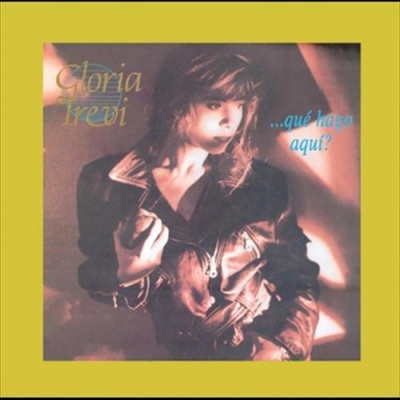
Qué Hago Aquí?
by Alex HendersonGloria Trevi was only 19 when she recorded her debut album, Qué Hago Aquí?, which established the Mexican singer as a major star in the Latin pop and rock en Español fields. Fueled by the infectious, new wave-ish single "Dr. Psiquiatra," this CD went down in history as one of 1989's most important and consequential Latin releases. Someone who speaks no Spanish and doesn't follow Latin music might wonder what all the fuss was about and think, "OK, this is an infectious, spirited pop/rock album, but why is Trevi considered so important?" The thing is that Trevi was much more than a provider of catchy pop/rock; she was an agitator who, like Madonna and Prince, challenged sexual attitudes and gender roles -- and she did this in Mexico, a country that can be quite conservative socially. Not that Qué Hago Aquí? has ultra-explicit lyrics; even the most risqué parts of the album -- namely "Besame Aqui" (which means "kiss me here") and "No Tengo Ropa" -- are downright tame compared to Lil' Kim's raunchy lyrics. But for Mexico in 1989, Trevi's sexually provocative, Madonna-ish image was nothing less than revolutionary. And even if you don't think of Trevi in sociopolitical terms or understand her lyrics, the singer's melodies are still captivating. Trevi, much to her credit, wrote most of the material herself -- including the smash hit "Dr. Psiquiatra" -- although she also embraces Spanish-language versions of the Rolling Stones' "Satisfaction" and Wayne Cochran's "Last Kiss" (a hit for J. Frank Wilson & the Cavaliers in 1964). Without a doubt, Qué Hago Aquí? was an impressive, highly promising debut for Trevi.
